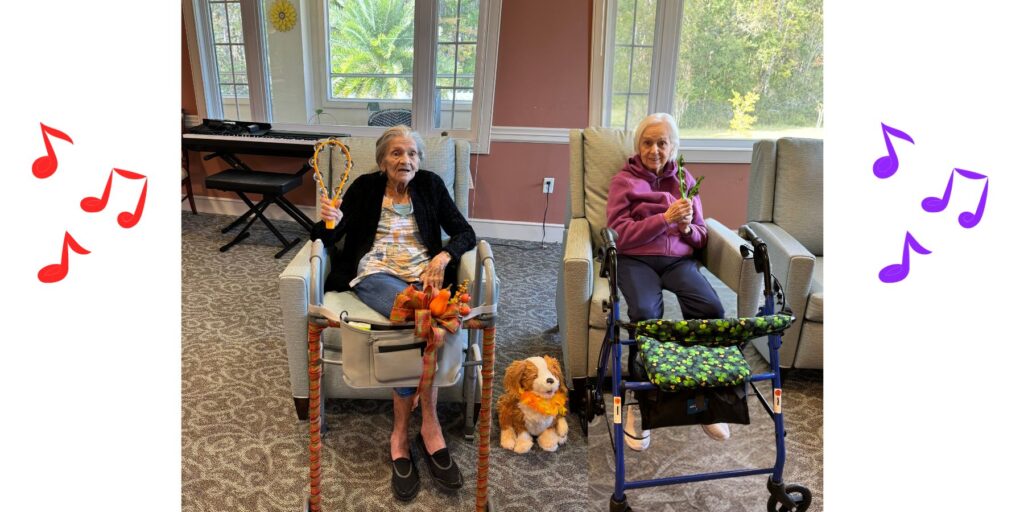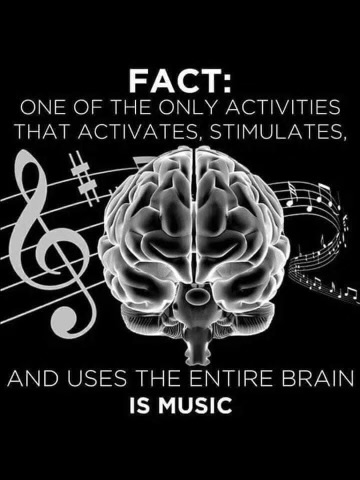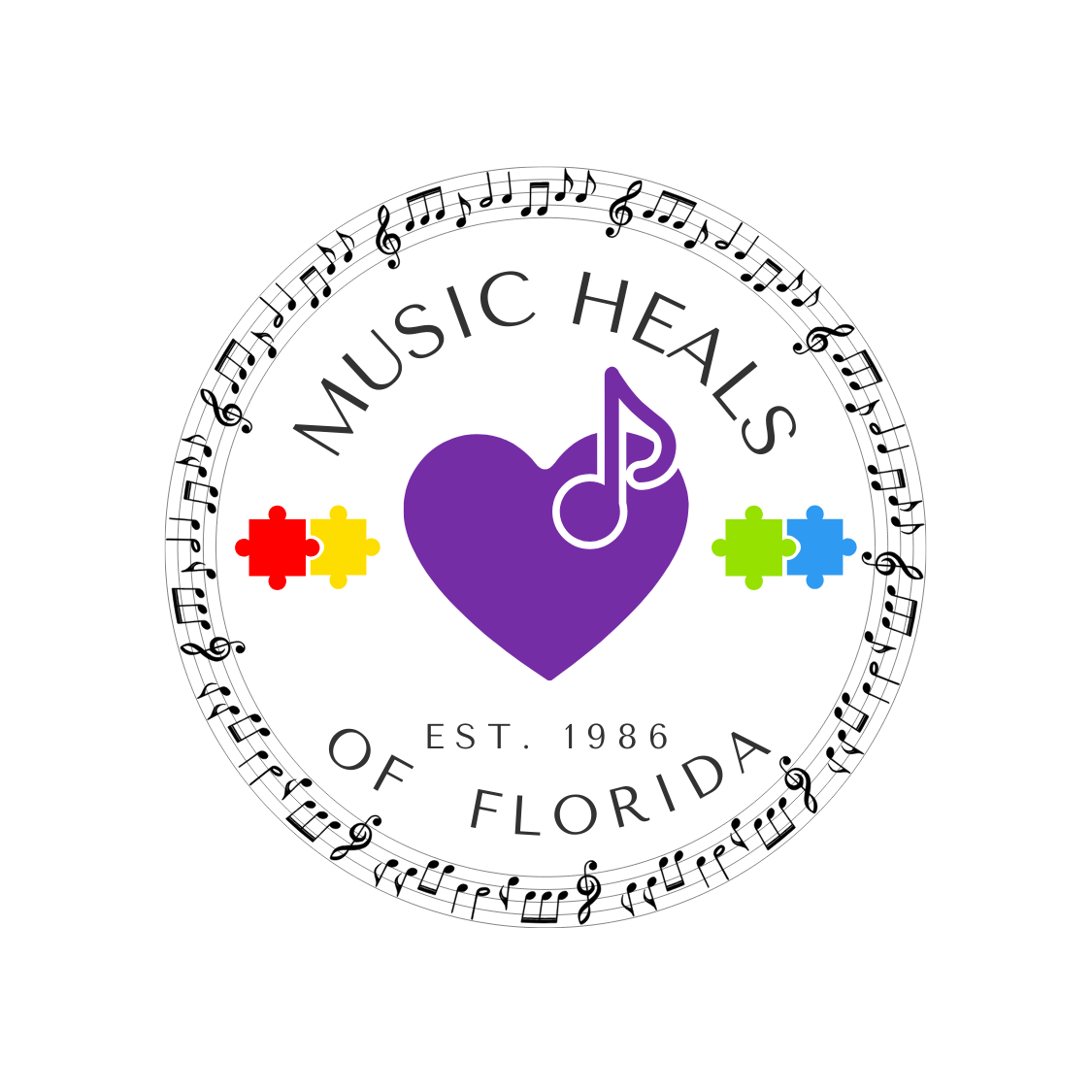Older Adults
Music Therapy Benefits

We serve Senior Living Communities, particularly those with Memory Care units designed for individuals with Alzheimer’s and related dementias. Music Therapy can play a vital role in providing a safe and supportive environment for those who face cognitive challenges.

Music therapy offers a powerful avenue for enhancing the quality of life for seniors living with Alzheimer’s and related dementias. Here are some ways in which music therapy can help.
Emotional Connection
Music has the extraordinary ability to evoke emotions and memories. Even for those with advanced cognitive decline, familiar tunes can trigger memories, feelings, and connections with loved ones. Music therapy provides a means for emotional expression and connection, reducing feelings of isolation and enhancing social interaction.
Cognitive Stimulation
Engaging in musical activities stimulates cognitive processes. Singing, playing instruments, and rhythmic exercises can help maintain cognitive function and slow the progression of cognitive decline. This is especially valuable in Memory Care units, where residents may benefit from mental engagement.
Reducing Anxiety and Agitation
Music has a calming effect and can help reduce anxiety and agitation, common symptoms among individuals with dementia. Music therapy offers a non-pharmacological approach to managing behavioral challenges and promoting a sense of calm.
Enhancing Communication
For those with communication difficulties, music therapy provides an alternative mode of expression. Non-verbal communication through music can bridge the gap and enable residents to express themselves, improving their overall well-being.
Improved Quality of Life
Music therapy enhances the overall quality of life for seniors in Memory Care units. It provides moments of joy, connection, and a sense of purpose, contributing to a better and more fulfilling life despite the challenges posed by dementia.
Music Therapy provides opportunities for residents to engage in musical activities and experiences, these communities strive to create a nurturing and supportive environment that fosters well-being and dignity for seniors living with Alzheimer’s and related dementias.



HOW SINGING AFFECTS OUR HEALTH
* Immunoglobulin and hydrocortizone, chemicals that are indications of a healthy immune system, are produced in the human brain when we sing, resulting in an uplift in mood and increase in vitality.
* Singing improves blood circulation in the throat area, which has a beneficial effect on the vocal cords and lymph nodes in the throat; thereby boosting the immune system.
* The blood supply increases while singing, leading to an increase in brain activity; resulting in memory improvement, as information is easier to perceive.
* Singing is very beneficial for lung diseases, as it works as a breathing gymnastics, which promotes chest development, proper breathing, and significantly reduces the number of acute lung conditions.
* Singing can help improve verbal communication, adding words to a previously non-verbal childs’ repertoire.
